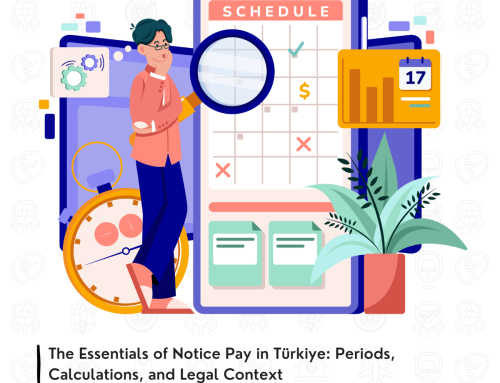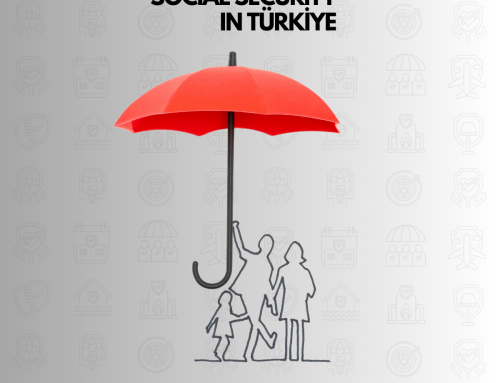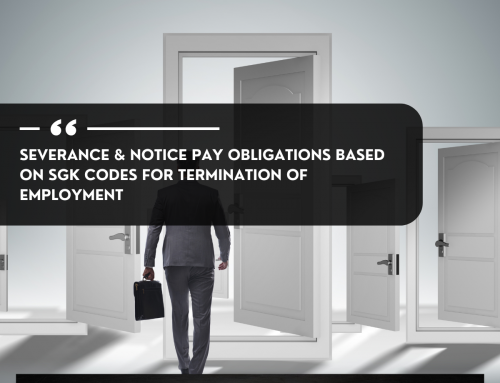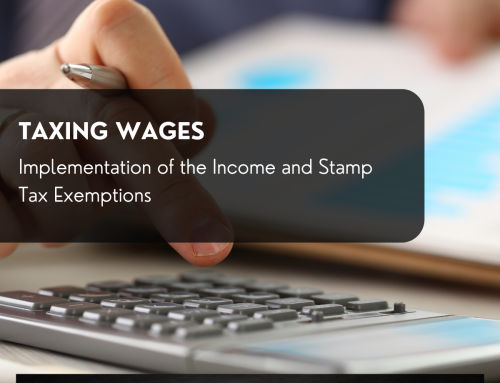Payroll in Turkey
Updated on January 2024 | In Türkiye, the Net Minimum Wage was adjusted with a significant 49% increase, reaching TRY 17,002.12. Explore further details below 🔍
Are you looking to streamline your payroll processes in Türkiye? Understanding payroll calculation, tax regulations, rates, and accounting is crucial for both employers and employees. Let’s delve into the details and master effective payroll management within Türkiye’s dynamic business landscape. Explore the power of our PEO services, which simplify payroll, navigate tax regulations, optimize rates, and ensure accurate accounting. Contact us today at www.stafimy.com to learn more and get started.
DEFINITION OF WAGE AND ITS TAXATION UNDER THE TURKISH LAW
As outlined in Article 61 of Income Tax Law No. 193, wage encompasses both monetary and non-monetary benefits provided to registered employees in exchange for their services, regardless of the payment labels used, such as indemnity, allowance, cash compensation, allocation, increment, advance, remuneration, attendance fee, premium, bonus, expense reimbursement, or revenue-based percentages.
DEFINITION OF WAGE AND ITS TAXATION
Definition of wage exists in a variety of relevant Turkish laws and regulations. Article 32 of Turkish labor law defines wage as;
“Wage is, in general terms, the amount of money to be paid in cash by an employer or by a third party to a person in return for work performed by him.”
More detailed definition of wage is given under the article 61 of the law no: 193 on Income Tax Law. Accordingly, wage is defined as;
“Wage is a benefit provided by cash in kind and cash, represented by cash, in return for services performed by employees registered and subject to an employer. It does not change the true nature of wage by paying it under the names of indemnity, allowance, cash compensation (Financial Liability Indemnity), allocation, increment, advance, remuneration, attendance fee, premium, bonus, in return of an expense or determined by a particular percent of revenue provided not to have the attribute of a partnership. ”
In accordance with article 32 of Turkish Labor Law, there are three components of wage; (1) Wage should be paid in return for performed work, (2) wage should be paid by an employer or by a third party, (3) wage should be paid in cash.
For the purpose of law no: 193 on Income Tax, on article 61, components of wage are defined as; (1) being subject to an employer, (2) work in association with a specific place of business (3) being paid in return of services performed
All payments, which are treated as wage under Income tax law, are subject to the income tax. As per article 61 of Turkish income tax law (law no. 193) in addition to wage, all other associated income such as allowances, bonuses, anniversary gifts, gratuities, commissions, premiums, compensations and other wage and salary related remunerations including benefits in kind at market value are also subject to the income tax.
Taxable income is determined after the deduction of some allowed expenditures from the gross amount. These deductions explained under article 63 and 89(1) of Law no: 193 on Income Tax as;
(1) Legal deduction made according to various laws or regulations,
(2) Premiums and contributions made to the social security institution.
(3) 50 % of life insurance premiums made by employees on their own behalf or on behalf of their spouse and/or children to private insurance and retirement companies which are resident in Turkey and whose headquarters, registered head offices or business centers are in Turkey, Insurance premiums made by the employees on their own behalf or on behalf of their spouse and/or children for death, accident, disease, disability, unemployment, maternity, birth and education polices provided that total amount premiums deducted shall not exceed %15 of monthly income and yearly amount of minimum wage.
(4) Payments made for labor union membership.
Additionally, following benefits are (fully or partially) exempted from income tax;
- Benefits, provided by the employer in the form of the free meal within the business place or its annexes are excluded from the scope taxable income. In the case of not providing free meal within business place or its annexes , obtaining meal service from the outside providers such as by using meal tickets, income tax exemption will be applicable only up to daily settled limit by law (In accordance with Income Tax General Communiqué with Serial no: 324 – 170 TL – excluding VAT in 2024) . In the latter case, the employer required to pay the price for the meals directly to the meal service provider, or intermediary. Any payment made directly to the employees under the name of the meal or food allowance is subject to income tax. (Article 23 (8) of Income tax law)
- Benefits, paid to employees due to birth and marriage, are exempt from income tax. This exemption is limited up to two months’ salary of the employee. In the excess of this limit, the remaining amount is subject to income tax. (Article 25(5) of income tax law)
- Payments made to the employees in the name of ‘child benefits’ are exempt from income tax. This exemption is applicable for maximum two children and limited to the settled amount received by the government employees. (Article 25(4) of income tax law)
Employee benefits and their exemption amounts for the second half of 2024;
I. FOLLOWING AMOUNTS ARE NOT SUBJECT TO SOCIAL SECURITY PREMIUM.
CHILD ALLOWANCE (Applicable max. for two children) — 400,05 TL
FAMILY ALLOWANCE — 2.000,25 TL
DAILY FOOD ALLOWANCE — 157,69 TL
II. FOLLOWING AMOUNTS ARE EXEMPTED FROM INCOME TAX
CHILD ALLOWANCE
For 0 to 6 Years old 216,84 TL, above 108,42 TL
DAILY FOOD ALLOWANCE — 170 TL excluding VAT.
TRANSPORTATION ALLOWANCE – 88 TL
*The list provided above is not exhaustive. There might be other expenses, benefits or payments that are exempt from income tax and social security premium. Please consult with your accountant for more information.
The employee who lost working capacity at minimum 80 % is regarded as 1st degree disabled, minimum 60 % is 2nd degree disabled, minimum 40 % is 3rd-degree disabled worker. In calculating income tax, the following monthly deductions are applicable to the taxable income of the employees:
- For the 1st degree 6900 TL
- For the 2nd degree 4000 TL
- For the 3rd degree 1700 TL
TAX EXEMPTION REGARDING THE WAGES PAID BY EMPLOYERS WITH LIMITED TAX LIABILITY[1]
- In accordance with article 3(2) of Corporate Income Tax law numbered 5520[2], Corporations[3] have a limited tax liability for income deriving from Turkey if neither their registered office nor their business center is within Turkey. Full liability taxpayer corporations are subject to corporation tax on their worldwide income.
- As per article 23(14) of Income tax law, employees working for limited liability corporations whose registered offices and business centers are not located in Turkey are exempt from income tax if; (this usually applies to the liaison offices)
- The wage is paid out from the earnings and revenues generated abroad.
- The wage is paid out in the form of foreign currency.
- Wage is not evaluated in Turkey.[4]
[1] Income tax law (Law no. 193) distinguishes limited tax liability and full tax liability. As a general rule, resident taxpayers are subject to full tax liability for their worldwide income. (art.3) Nonresident taxpayers are taxable on their income generated in Turkey. For the purpose of the Income-tax law, resident taxpayer refers to those who have legal residence in Turkey and who stay in Turkey more than six consecutive months within a calendar year. (art.4)
[2] Law No. 5520, Official Gazette of 21.06.2006, No. 26205.
[3] Refers to all subjects of Corporate Income Tax law.
[4] The term evaluated refers to the situations which salary payments are used as expenses against profits taxable in Turkey.
PAYROLL PARAMETERS (2024)
Disclaimer: Please consider that the information provided on this page is for informational purposes only. While we strive to ensure the accuracy and timeliness of the content, it should not be interpreted as legal, financial, or professional advice. The intricacies of payroll accounting in Turkey may vary depending on specific circumstances and regulations. We recommend consulting with qualified professionals or relevant authorities for personalized guidance tailored to your unique needs.
I- Gross Salary:
Gross Salary refers to the amount of salary which is earned by employees according to Turkish Labor Law.
- Gross Salary = Net Salary + Total Deductions (Social Security Premium Employee’s Share (including Unemployment Insurance) + Income Tax + Stamp Tax)
II- Net Salary:
It is the amount of salary actually received by the employees.
- Net Salary = Gross Salary – Total Deductions
III- Employer’s Cost:
In addition to the gross salary, the employer must pay the employer’s share of social security and unemployment insurance premiums.
- Total Cost of Employee to Employer = Gross Salary + Social Security Premium Employer’s Allocation (including Unemployment Insurance)
IV-Social Security Premium and Unemployment Insurance
(Effective from 01/09/2013 Short term insurance branches premium rate is determined as 2% of earning subject to premium regardless of the gravity of the danger of the work.)
| Insurance Branches | Employee’s Allocation (%) | Employee’s Allocation (%) | Total Allocation (%) |
|---|---|---|---|
| Short Term Insurance Branch Premium | – | 2 | 2 |
| Invalidity, Old Age and Death Insurance Premium | 9 | 11 | 20 |
| General Health Insurance | 5 | 7,5 | 12,5 |
| Unemployment Insurance | 1 | 2 | 3 |
| Total | 15 | 22,5 | 37,5 |
| SOCIAL SECURITY BASE AND CEILING | MONTHLY (TL) |
|---|---|
| BASE (01 Jan 2024 – 31 Dec 2024) | 20,002.50 |
| CEILING (01 Jan 2024 – 31 Dec 2024) Base (x) 7.5 | 150,018.75 |
V- Income Tax: (2024)
Income Tax Base (Taxable Income) = Gross Salary – Social Security Premium (Employee’s Share)
Income Tax = Taxable income * Income Tax Rate (%)
| Income Tax (Cumulative) (Wage Income)(2024) | Rates |
|---|---|
| Up to 110 000 TL | 15% |
| Between 110 000 and 230 000 TL (For the 70 000 TL of the total amount, income tax is 16 500 TL) in excess | 20% |
| Between 230 000 and 870 000 TL (For the 70 000 TL of the total amount, income tax is 40 500 TL) in excess | 27% |
| Between 870 000 and 3 000 000 TL (For the 870 000 TL of the total amount, income tax is 213 300 TL) in excess | 35% |
| Over 3 000 000 TL (For the 3 000 000 TL of the total amount, income tax is 958 800 TL) in excess | 40% |
VI – Allowances not Subject to Social Security and Income Tax (2024)
I. The following allowances are not subject to Social Security premiums:
- Child Allowance (applicable for a maximum of two children) — 400,05 TL (Gross Salary * 2%)
- Family Allowance — 2,000.25 TL (Gross Salary * 10%)
- Daily Food Allowance — 157.69 TL (Daily Gross Salary * 23.65%)
II. The following allowances are exempt from Income Tax (2024):
- Child Allowance:
- For children aged 0 to 6 years old — 216.84 TL
- For children aged above 6 — 108.42 TL
- Daily Food Allowance — 170 TL (excluding VAT)
- Transportation Allowance – 88 TL
VII- Stamp Tax: (2024)
Stamp tax is based on the gross salary. The rate of tax is 0,00759
- Stamp Tax = Gross Salary * Stamp Tax Rate
VIII – Disablement Deduction (2024)
The employee who lost working capacity at minimum 80 % is regarded as 1st degree disabled, minimum 60 % is 2nd degree disabled, minimum 40 % is 3rd-degree disabled worker. In calculating income tax, the following monthly deductions are applicable to the taxable income of the employees.
- For the 1st degree 6900 TL
- For the 2nd degree 4000 TL
- For the 3rd degree 1700 TL
INCOME AND STAMP TAX EXEMPTIONS
On December 25, 2021, Law No. 7349, which contains amendments to the Income Tax Law and various other laws, came into effect after its official publication in the Official Gazette.
Under the newly added sub-paragraph (18) to Article 23 of the Income Tax Law No. 193, facilitated by Article 2 of Law No. 7349, wages of employees that equate to the amount remaining after deducting the social security institution premium and unemployment insurance premium from the gross monthly minimum wage are now exempt from income tax. Nonetheless, for the portion of wage income that exceeds this exemption, the income slice amounts and rates used for calculation are adjusted to take into account the amounts that fall within the scope of the exemption.
When calculating the payable tax, the portion that corresponds to the exemption amount is subtracted from the initially calculated tax. However, the tax that is not collected due to this exemption cannot exceed the tax amount that should be calculated over the monthly minimum wage for the relevant month. If an employee receives wages from more than one employer, this exemption applies only to the highest wage.
Stamp tax on the Minimum wage has also been abolished as per an additional phrase added to paragraph 34 of the table numbered (2) of the Stamp Tax Law No. 488 through Article 4 of Law No. 7349.
Furthermore, with the abolition of income tax on minimum wage, due to the repeal of Article 32 of the income tax law through Article 3 of Law No. 7349, the minimum living allowance, which has become obsolete, is also abolished.
MINIMUM WAGE CALCULATION (2024)
| Gross to Net Calculation ( Period Between 01.01.2024 – 31.12.2024) | |
|---|---|
| Gross Salary | 20,002.50 TL |
| Social Security Premium Employee’s allocation (14%) | 2,800.35 TL |
| Unemployment insurance Employee’s allocation (1%) | 200.03 TL |
| Income tax base | N/A |
| Income tax (15%) | N/A |
| Income tax payable | N/A |
| Stamp tax (0,00759) | N/A |
| Total Deductions (Income tax payable +Stamp Tax + Social Security Premium Employee Allocation +Unemployment Insurance Employee Allocation) | 3,000.38 TL |
| NET SALARY | 17,002.12 TL |
| Total Cost of Employee to Employer | |
| Gross Salary | 20,002.50 TL |
| Social Security Premium Employer’s allocation (15.5%)* | 3,100.39 TL |
| Unemployment Insurance (2%) | 400.05 TL |
| TOTAL COST | 23,502.94 TL |
*“For private sector employers who employ insurance holders under item (a) of paragraph one of Article 4 of this Law, the amount corresponding to five points of the employer’s share in the premiums of invalidity, old age, and survivors’ insurance, pursuant to item (a) of paragraph one of this Article, shall be covered by the Treasury.” (Social Insurance And Universal Health Insurance Law, Law No: 5510 – Article 81-I)
Changes in Net & Gross Minimum Wage and Employer Costs Over Time
| wdt_ID | Period | Net Minimum Wage | Gross Minimum Wage | Employer Cost | Increase % |
|---|---|---|---|---|---|
| 1 | 01.01.2024-31.12.2024 | 17.002,12 | 20.002,50 | 23.502,94 | 49,11% |
| 2 | 01.07.2023-31.12.2023 | 11.402,32 | 13.414,50 | 15.762,04 | 34,04% |
| 3 | 01.01.2023-30.06.2023 | 8.506,80 | 10.008,00 | 11.759,40 | 54,66% |
| 4 | 01.07.2022-31.12.2022 | 5.500,35 | 6.471,00 | 7.603,43 | 29,32% |
| 5 | 01.01.2022-30.06.2022 | 4.253,40 | 5.004,00 | 5.879,70 | 50,51% |
| 6 | 01.01.2021-31.12.2021 | 2.825,90 | 3.577,50 | 4.203,56 | 21,56% |
| 7 | 01.01.2020-31.12.2020 | 2.324,71 | 2.943,00 | 3.458,03 | 15,03% |
| 8 | 01.01.2019-31.12.2019 | 2.020,90 | 2.558,40 | 3.006,12 | 26,06% |
| 9 | 01.01.2018-31.12.2018 | 1.603,12 | 2.029,50 | 2.384,66 | 14,18% |
| 10 | 01.01.2017-31.12.2017 | 1.404,06 | 1.777,50 | 2.088,56 | 7,92% |
| Period | Net Minimum Wage | Gross Minimum Wage | Employer Cost | Increase % |
For Premium Services
With our trusted Immigration and PeO services, since more than ten years, we are assisting our International Business Partners in Turkey through wide ranges of valuable services including immigration formalities, payroll, taxation, finance& insurance, compliance and risk management.
As a Turkish PEO, powered by our context knowledge and deep expertise, we offer one-stop solutions and customized service plan to your employment needs in Turkey.
https://www.stafimy.com #bridgingprofessionalism











